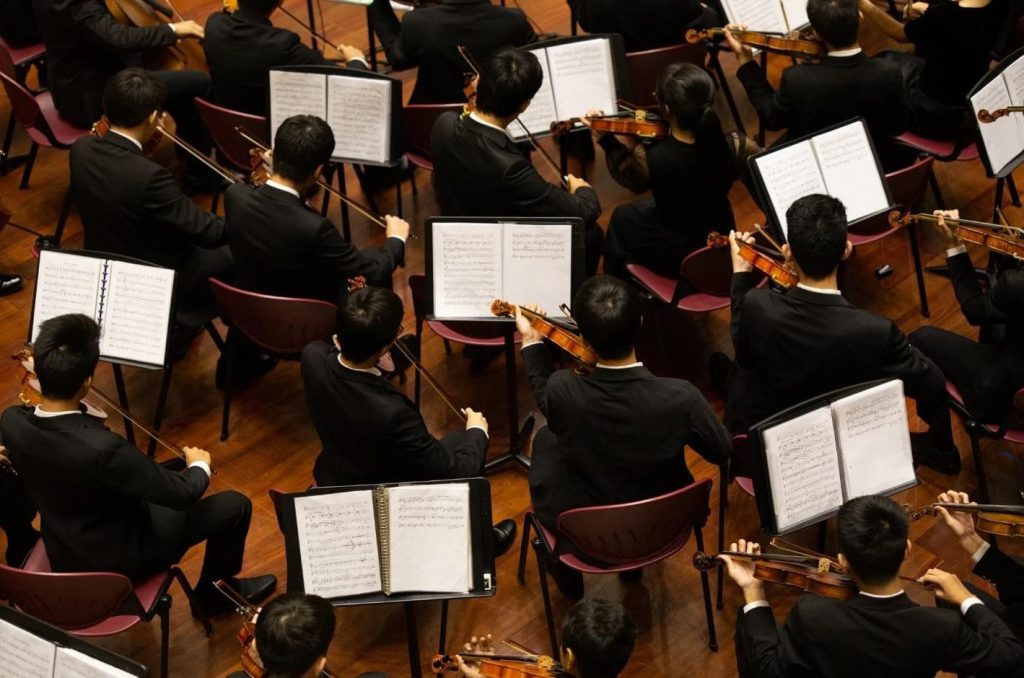5 Benefits of Music Education For College Students
Imagine a world without music. Just thinking about possible scenarios is already challenging. It may be something we can easily access every day because of the internet’s convenience. But once it disappears, your lifestyle will change. Whether you play an instrument or enjoy listening to K-pop or classical music, you will be affected. Unknowingly, even our society would undergo drastic changes as well.
Nowadays, the music education field is struggling to find its place in many schools’ curricula. According to some research, many schools are slowly reducing or removing this subject in lower high school levels. Several factors contribute to this, such as budget cuts and varying priorities. However, it cannot be denied that music benefits people, not just students, in many ways. This article will learn the benefits of music education, making it a vital part of students’ education.
Stress Reliever
Have you ever felt calmed down because of music, especially when stressed? Whatever genre is your go-to song, you cannot deny that it can shift your mood right away. Likewise, creating music can be a healthy outlet for students like you to release their stress. Instead of venting their anger on someone else, you can direct it on writing lyrics or formulating a new melody. As a result, you have focused your time and energy on doing what you love and produced something out of it.
Researches show that playing musical instruments helps improve one’s physical and emotional health by switching off the stress response. It has lowered burnout among nursing students and improved their academic performance and behavior of at-risk youth. These show that making music is helpful not only in reducing students’ stress but also in improving their well-being. If you are still worried about “who can write my essay in 1 hour,” music and custom writing companies can help with that.
Teamwork
Many students often find themselves feeling left out in school for various reasons. Sometimes, they are challenged to look for groups to fit in and be appreciated. As a result, their communication skills and social life are affected.
If you are one of those students, you must take advantage of the social benefits of music. These include developing friendships among other people and teamwork within the group. Because you will be working with others, you will learn how to interact better to communicate your thoughts and ideas. Working as a team will make you feel more encouraged and develop a sense of belongingness.

Moreover, your shared interests will allow you to make friends easier. Your topics for discussion are boundless. You can even collaborate with them to work on a song. Enjoying music with people who like it as much as you do can make you feel happier.
So, if you know how to sing or play a musical instrument, you must try to join your school’s orchestra or choir. But if you want to establish an identity or “brand” with others, it is best to form a band.
Enhanced Cognitive Skills
Many schools do not see the advantages of music to students’ cognitive skills, resulting in its disappearance in their curriculums. Despite this, it cannot be denied that music helps develop. Studies show that a musician’s brain works differently than a non musicians. “There’s some good neuroscience research that children involved in music have larger growth of neural activity than people not in music training,” says Dr. Eric Rasmussen, chair of the Early Childhood Music Department at the Peabody Preparatory of The Johns Hopkins University.
Besides learning music, you can also take advantage of the benefits of teaching music. According to Dale’s Learning Pyramid, students can retain information better by teaching others. To impart what you know to others well, you must master the subject first. You must have great mastery, recall, and retention of the concepts. So if you want to improve your cognitive and interpersonal skills, you can tutor a younger child or sibling. It would also help to try peer tutoring with your friends.
Time Management
Another essential music benefit to students is learning how to manage their time. Students nowadays have a lot on their plates, such as paper works, training sessions, and even part-time jobs. With everything going on in their lives, they often lose focus, leading to poor time management. It can also result in poor academic performance and increased stress levels.
Music-making or learning will not be a walk in the park if they do not manage their time well. To continue doing what they love, they must exert an effort to plan their day and activities. They must also strive to work on their music without sacrificing their other responsibilities. It might be challenging, but all your efforts will be worth it.

Multi-Tasking
If you have watched an orchestra perform before, you must have witnessed how they multitask. They are focused on playing their respective instruments and attentive to the conductor. Besides those, they have to read their music sheets and listen to the ensemble simultaneously. Without it, they will not achieve the quality of performance they desire.
Even if you are playing independently, you will still need to multitask. Looking at the notes and playing your instrument simultaneously is not easy. But it takes time and constant practice to reach your goals. Once you develop multitasking skills and do them effectively, you can use them even until adulthood. Also, the satisfaction and happiness you will have once you finish your song can take away all your exhaustion.
In conclusion, music education has multiple effects on students’ lives. Even though other people overlook music education’s importance, you must know that it is helpful to students. Some of its benefits include enhanced cognitive skills and the development of their time management habits. Creating music and collaborating with others can help reduce your stress levels and increase your teamwork and interpersonal skills. Last but not least, it can aid in developing your multitasking skills. As a student, you must maximize these advantages and put them to good use.






